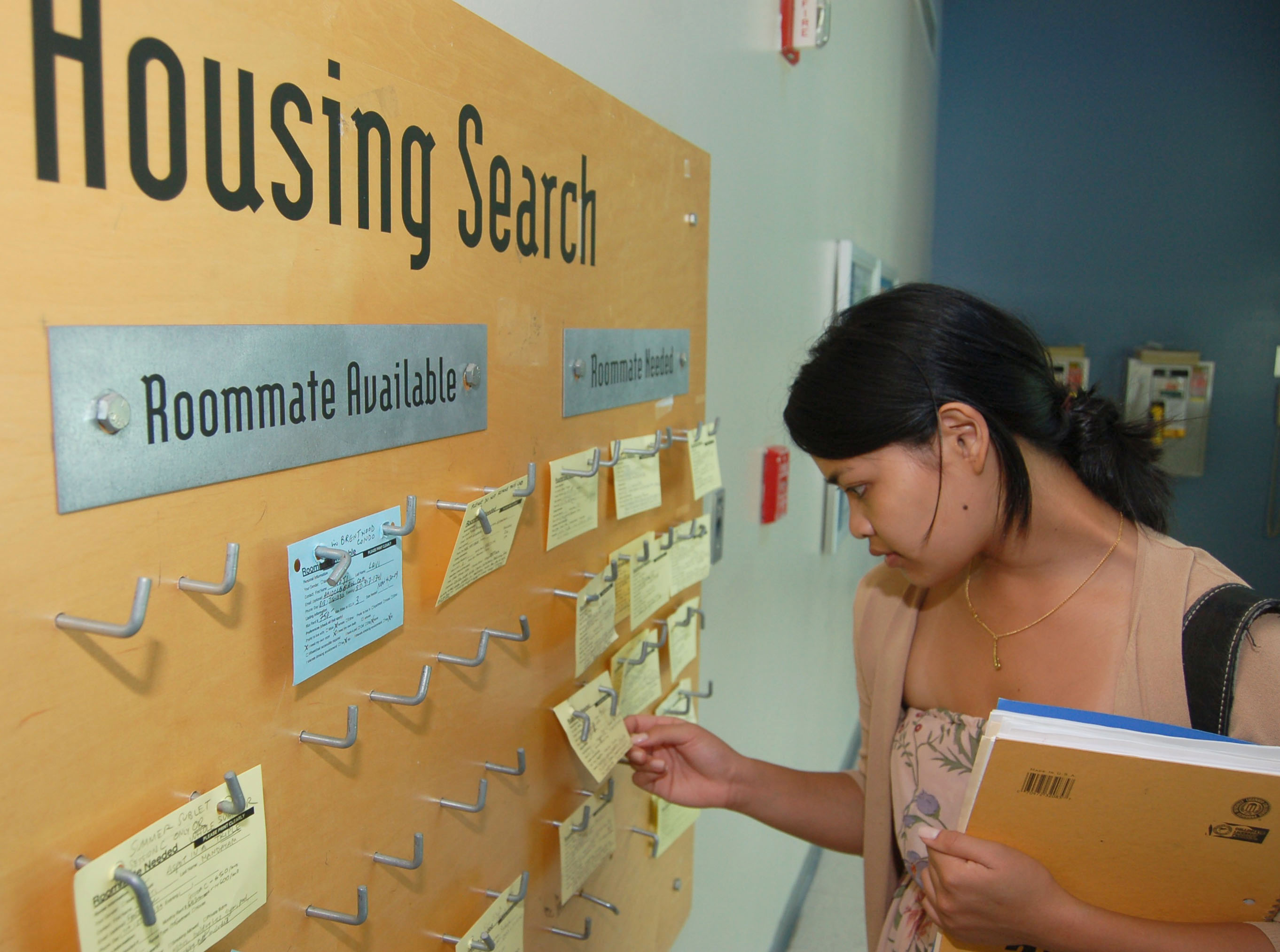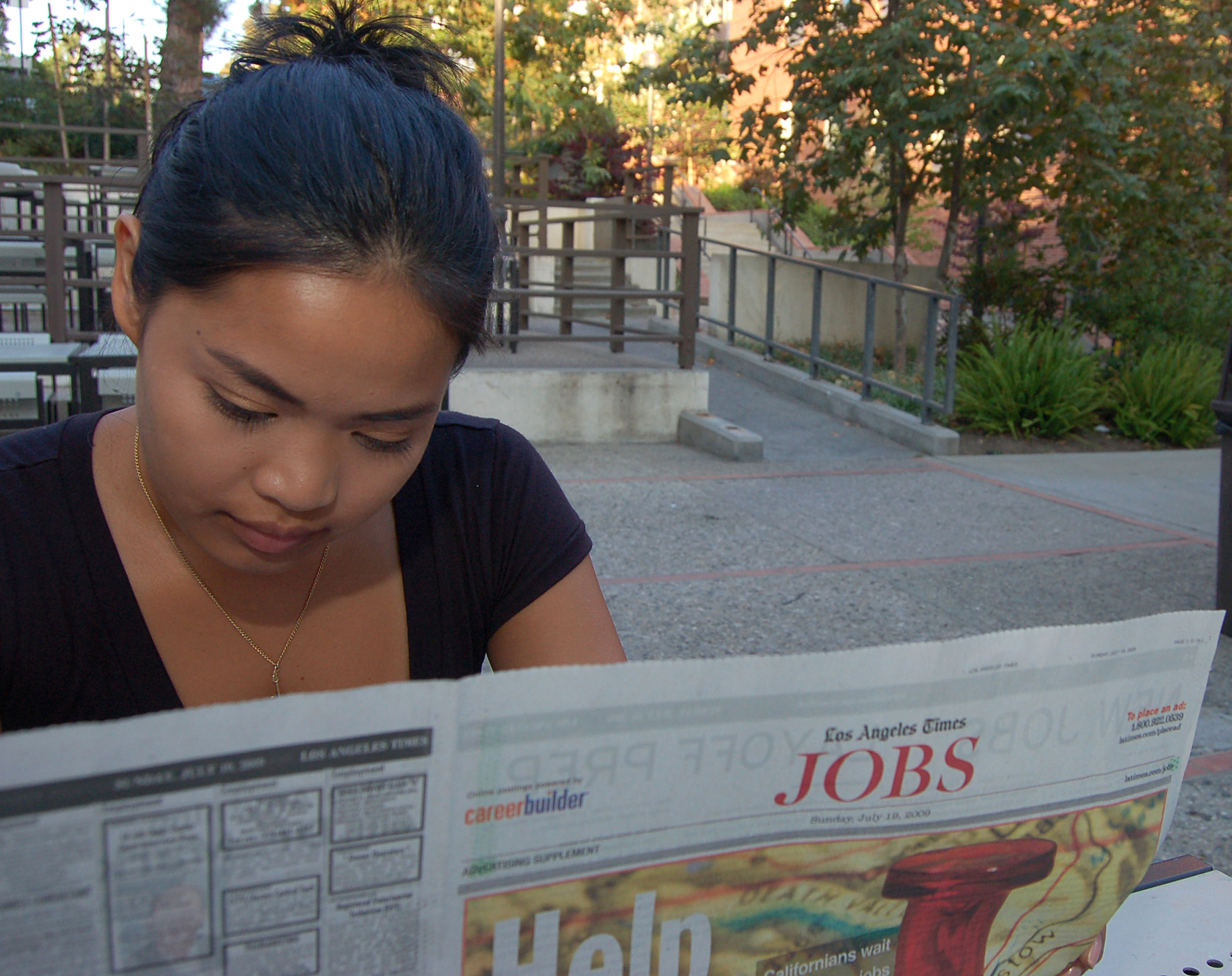
|
Sabrina StoryFilipinas/December 2009 On a cool spring evening in Westwood, Sabrina finished up studying later than usual at Powell Library. At 1:30 a.m. the UCLA junior reached the dorm where she was temporarily sleeping on a fellow student's couch. Only this time she was stopped by two dorm monitors. "You don't live here." "I'm a guest." "I'm sorry, but you'll have to look for another place." The two dorm monitors politely escorted Sabrina out onto Gayley Avenue. After weeks of sleeping on couches and in the library, and of skipping meals, Sabrina was now on the street. Exhausted, she sank to the curb in the dark--and began crying. Eventually Sabrina texted a friend, who offered a couch for the night. She reached her destination on foot at 4 a.m. But she tossed and turned on the new couch until sunrise, pondering her life. * * * Born in the Philippines 22 years ago, Sabrina emigrated to the U.S. in 1998. Her family struggled--living in garages and small apartments. Speaking no English when she arrived, Sabrina attended four Orange County high schools in four years. But she excelled at Cypress Community College and transferred to UCLA in fall 2008. Majoring in International Development Studies, Sabrina also began working at a Santa Monica nursing home to pay for tuition, rent and food. It was her first time living away from home and working full time. But when the job suddenly ended in late December 2008, Sabrina vacated her apartment and sold her furniture, laptop, and most of her clothes. She began calling friends, whose Westwood-area couches she slept on for a week at a time. Her possessions--a few blouses, pairs of jeans, and books--fit into a duffle bag. She scoured the classifieds for jobs. Sabrina began bouncing from couch to couch, from short-term job to job--filing clerk, food server, personal assistant, and baby sitter. She'd walk or bus to job interviews--trying to stay presentable. She used UCLA rest rooms and showers. With the economy collapsing, student jobs were scarce. "I told employers I'd stay late, work overtime, and work as hard as I could." She skipped meals, often existing on one meal a day. Once, she spotted a bag of chips dangling behind the glass in a north campus vending machine. She pushed the machine, but couldn't get the chips to fall. When she caught a bad cold, she borrowed Tylenol and kept going to class, earning As. "I felt lost on this big campus, and didn't know where to turn for help. "I thought about quitting and getting a job. But my love of learning kept me going. I'm not just chasing a degree. For me, the American dream is knowledge." "I told myself to keep going, to make the most of my life." To reach various couches, Sabrina walked the streets near campus at night. "I got lost at times, and feared for my safety." Finally in late January 2009 Sabrina dragged herself into UCLA's Student Activity Center. She hadn't showered in days. "I haven't eaten anything substantial for four days and I'm homeless," she said tearfully to a woman in the Community Programs Office. "I need some food." "We're starting a free food closet and meal voucher program," the woman said, giving her money for food. The food closet and meal vouchers weren't an accident. In fall 2008, UCLA staff and student leaders started hearing of students becoming hungry and homeless because their parents were losing their jobs, savings, and homes. (In spring of 2009 the school paper quoted an estimate of roughly 100-200 homeless UCLA students.) In response to the economy's negative impact on students, the school started an Economic Crisis Response Team. A meal vouchers program was started, a staff-donated food closet was opened in February 2009, and the school connected with off-campus temporary shelters in order to make referrals. Sabrina limped through winter and spring quarters, couch surfing and working odd jobs. She still skipped meals, but often used the food closet and used meal vouchers when she was really hungry. She caught another bad cold, used old notebooks, and wrote poetry to bolster her spirits. Shocked by Sabrina's situation, her friend Isis offered emotional support, stayed in touch, and worried. After one friend advised her to drop out, Isis urged her not to. In early April Sabrina stopped by the UCLA student government office seeking work. When student body president Homaira Hosseini learned Sabrina was homeless, she asked if she'd speak at a campus event to raise concern about homelessness in Los Angeles. 
Sabrina agreed. A few days later, Sabrina shared her story and her views on global homelessness and poverty. Recalls Hosseini: "Many students were shocked to hear about a homeless UCLA student. The situation was in the shadows." Said Sabrina: "I wanted students to know that even someone sitting next to them in class could be homeless. I made sure to mention the food closet and meal vouchers." By becoming the human face of this campus situation, says Enku Gelaye, an executive officer in UCLA Student Affairs, she hopefully encouraged other struggling students to seek help. * * * In mid-June I met up with Sabrina and her friend Marricke Metoyer, who's provided couch connections at times. "What's crackin?" Marricke asked Sabrina over an on-campus iced tea. "Some UCLA faculty and staff provided financial support for me," Sabrina said. "A local philanthropic businessman and his family are helping raise tuition to help me graduate. And I have another couch, for now." "Cool!" Marricke said that since she learned of Sabrina's problem, she phones often, hangs out with her, and encourages her not to drop out. "Sabrina doesn't give up, thinks positive, and tries hard." Sabrina showed her friend an A+ paper. After chatting about classes, friends, and politics, they hug. "If you need a couch, call." "Thanks Marr." After Sabrina pointed out the Powell Library couch where she slept, she showed me the pile of canned soup and vegetables in the Community Programs Office food closet. "It's a big help." At nearby Ackerman Union, Sabrina checked the housing bulletin board. "Too expensive." After a Bunche Hall political science class, most students left quickly. But Sabrina lingered to question Professor Susanne Lohmann about her upcoming term paper. Sabrina doesn't tell professors she's homeless. "I want to be treated like everyone else." As we walked through Westwood Village Sabrina approached a homeless man. "I see you often," she said. "Where are you from?" "Alabama. I come here every day." "Well have a nice day." Sabrina's gotten to know some homeless on her treks through Westwood. "They get unfairly stereotyped." At the two bedroom Veteran Ave. apartment Sabrina recently began sharing with five students, Sabrina greeted roommate Lorena Guttierez. "I'm heating up dinner," Guttierez said "Want some?" "Sure," Sabrina said, pitching in to help." Guttierez is impressed Sabrina's hung in there. "It's hard to stay motivated in her situation. I couldn't do it. Most would give up." Escorting me back to Westwood in the dark, Sabrina said she thinks her situation's partly solved, that she'll probably be able to graduate. "I'm thankful to people who've helped me. UCLA graduation will be emotional for me." She's surprised how quickly things fell apart, that she kept going, that people helped, and that people are shocked by a homeless UCLA student. "I'm stronger and even more determined to help the global poor--especially in the Philippines. If I can survive the last six months, I can survive anything." A few days later Sabrina called to excitedly report she'd been accepted into a work/residency program at a Westwood church. "I'll still be scrambling for part-time jobs. But at least I feel like I'll have a real home." * * * |
||
|
|
||








